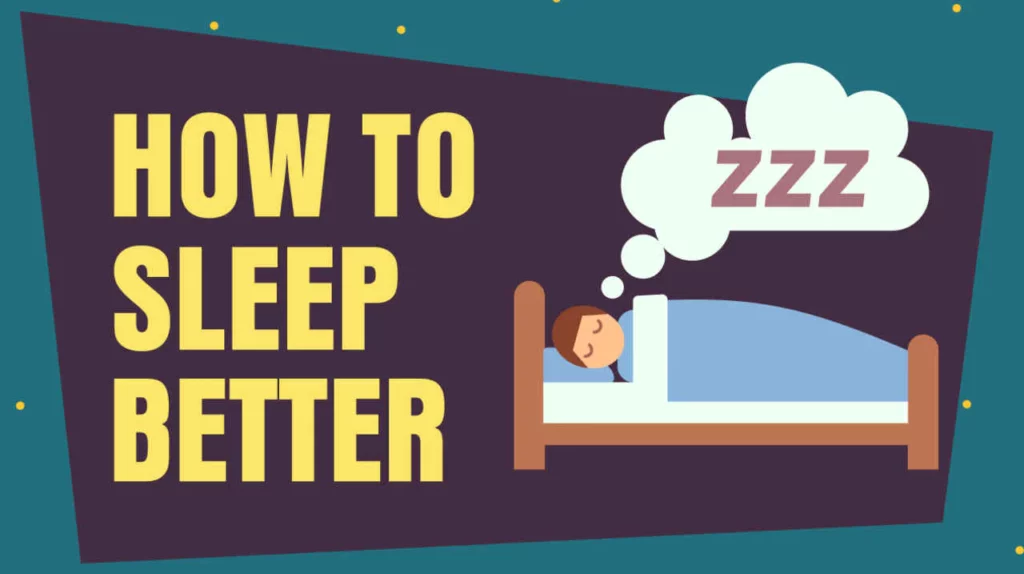Sleep apnea is a common sleep disorder that affects many individuals around the world. If left untreated, it can have significant impacts on overall health and well-being. Fortunately, there are ways to test for and manage this condition, particularly in Perth. In this article, we will explore the importance of understanding sleep apnea, the science behind it, and the various treatment options available. By taking control of your sleep health, you can improve your quality of life and achieve better overall well-being.
Understanding Sleep Apnea
Sleep apnea is a sleep disorder characterized by pauses in breathing during sleep that indicates in sleep study Perth. These pauses, known as apneas, can last for a few seconds to minutes and can occur multiple times throughout the night. They disrupt the normal sleep cycle, leading to fragmented and poor-quality sleep.
Individuals with sleep apnea may also experience other symptoms such as irritability, mood swings, and a decreased libido. The impact of sleep apnea extends beyond just feeling tired during the day; it can affect relationships, work performance, and overall quality of life. Seeking treatment for sleep apnea is essential not only for improving sleep but also for enhancing overall well-being.
The Science Behind Sleep Apnea
Sleep apnea occurs when the muscles in the throat relax too much during sleep, causing the airway to become partially or completely blocked. This obstruction leads to a decrease in oxygen levels in the blood, triggering the brain to wake the person up momentarily to reopen the airway. These awakenings are often so brief that individuals do not remember them, but they disrupt the normal sleep pattern.
Furthermore, untreated sleep apnea can have long-term consequences on one’s health. Chronic sleep deprivation caused by sleep apnea has been associated with an increased risk of developing type 2 diabetes, obesity, and depression. By addressing the underlying issue of sleep apnea, individuals can mitigate these risks and improve their overall health.
Common Symptoms and Risks of Sleep Apnea
Recognizing the symptoms of sleep apnea is crucial for early detection and treatment. Some common signs include loud snoring, excessive daytime sleepiness, morning headaches, and difficulty concentrating. Sleep apnea has also been linked to an increased risk of heart disease, high blood pressure, and stroke. Therefore, it is essential to address this condition promptly.
It is important to note that sleep apnea can affect individuals of all ages, including children. Pediatric sleep apnea often presents with symptoms such as bedwetting, poor academic performance, and hyperactivity. Identifying and treating sleep apnea in children is vital for their growth and development. Consulting a healthcare provider is the first step towards managing sleep apnea and improving the quality of sleep for both adults and children.
The Importance of Sleep Health
Adequate and restful sleep is crucial for overall health and well-being. It plays a vital role in maintaining physical and mental health, as well as supporting various bodily functions. Neglected sleep health can have severe long-term consequences, affecting both the quality and duration of life.
Creating a conducive sleep environment can significantly impact the quality of your rest. Factors such as room temperature, lighting, and noise levels play a crucial role in promoting deep and uninterrupted sleep. Investing in a comfortable mattress and pillows that support your body’s natural alignment can also enhance the quality of your sleep.
The Connection Between Sleep and Overall Health
Sound sleep is essential for optimal cognitive function, emotional well-being, and immune system strength. It helps the body repair damaged cells, consolidate memories, and regulate hormone levels. Furthermore, quality sleep promotes better mood regulation and reduces the risk of mental health disorders such as depression and anxiety.
Establishing a consistent sleep schedule can help regulate your body’s internal clock, known as the circadian rhythm. Going to bed and waking up at the same time every day, even on weekends, can improve the overall quality of your sleep. Avoiding stimulants like caffeine and electronic devices before bedtime can also facilitate a smoother transition into restful sleep.
Long-term Effects of Neglected Sleep Health
Chronic sleep deprivation or disrupted sleep can lead to a range of health problems, including weight gain, diabetes, compromised immune function, and an increased risk of developing chronic conditions such as cardiovascular disease. It is crucial to prioritize sleep health as part of an overall wellness routine.
Engaging in relaxation techniques before bedtime, such as meditation or deep breathing exercises, can help calm the mind and prepare the body for sleep. Creating a bedtime routine that signals to your body that it’s time to wind down can improve the quality of your rest. Remember, sleep is not a luxury but a necessity for a healthy and fulfilling life.

Sleep Apnea Testing in Perth
If you suspect you may have sleep apnea, seeking a proper diagnosis is essential. In Perth, there are specialized sleep clinics equipped to conduct comprehensive sleep apnea tests. These tests help medical professionals evaluate your sleep patterns and determine if you have sleep apnea.
It’s important to note that sleep apnea is a common sleep disorder that can have serious health consequences if left untreated. Symptoms of sleep apnea include loud snoring, gasping for air during sleep, and daytime fatigue. By undergoing a sleep apnea test at a reputable clinic in Perth, individuals can receive a proper diagnosis and access the necessary treatment to improve their quality of life.
What to Expect During a Sleep Apnea Test
A sleep apnea test, also known as a polysomnography, typically involves spending a night at a sleep clinic. During the test, your sleep will be monitored using various sensors and instruments. This includes monitoring brain waves, eye movements, heart rate, and oxygen levels. The test is painless and non-invasive, providing valuable insights into your sleep patterns.
Additionally, the data collected during a sleep apnea test is carefully analyzed by sleep specialists to determine the severity of the condition. This information is crucial for developing an effective treatment plan tailored to the individual’s needs. By undergoing a sleep apnea test in Perth, individuals can take the first step towards better sleep and improved overall health.
The Role of Sleep Clinics in Perth
Sleep clinics in Perth provide specialized care for individuals with sleep disorders. They offer comprehensive sleep apnea testing and work closely with healthcare professionals to develop personalized treatment plans. The clinics have state-of-the-art equipment and experienced staff who are dedicated to improving sleep health and overall quality of life.
Moreover, sleep clinics in Perth not only focus on diagnosing and treating sleep apnea but also educate patients on healthy sleep habits and lifestyle changes that can contribute to better sleep quality. By addressing the root causes of sleep disorders and providing ongoing support, these clinics play a vital role in promoting long-term sleep wellness in the community.
Treatment Options for Sleep Apnea
Once diagnosed, there are various treatment options available to manage sleep apnea. The choice of treatment depends on the severity of the condition and individual preferences.
It is essential to understand that sleep apnea is a serious condition that can have significant impacts on one’s overall health and quality of life. Seeking treatment is crucial in order to prevent complications such as heart disease, high blood pressure, and daytime fatigue.
Lifestyle Changes for Managing Sleep Apnea
Making certain lifestyle changes can significantly improve sleep apnea symptoms. These include losing weight, avoiding alcohol and sedatives before bed, establishing a regular sleep schedule, and sleeping on your side instead of your back. These changes help keep the airway open and reduce the frequency and severity of sleep apnea episodes.
In addition to the mentioned lifestyle changes, incorporating regular exercise into your routine can also be beneficial for managing sleep apnea. Exercise can help improve overall cardiovascular health, which in turn can reduce the severity of sleep apnea symptoms.
Medical Interventions for Sleep Apnea
In cases where lifestyle changes alone are not enough, medical interventions may be necessary. Continuous Positive Airway Pressure (CPAP) therapy is a common treatment for sleep apnea. It involves wearing a mask connected to a machine that delivers a continuous flow of air to keep the airway open during sleep. Other options include oral appliances, positional therapy, and in some cases, surgery.
It is important to consult with a healthcare provider to determine the most suitable treatment plan for your specific condition. Each individual may respond differently to various treatment options, and a personalized approach is key to effectively managing sleep apnea.

Taking Control of Your Sleep Health
Managing sleep apnea and taking control of your sleep health is essential for overall well-being. With the right knowledge and proactive steps, you can achieve better sleep and improve your quality of life.
Proactive Steps Towards Better Sleep
In addition to seeking proper diagnosis and treatment, there are several steps you can take to promote better sleep. These include creating a sleep-friendly environment, practicing relaxation techniques before bedtime, avoiding screens and stimulating activities close to bedtime, and maintaining a consistent sleep routine. These habits can help improve the quality and duration of your sleep.
Maintaining Sleep Health Post-Treatment
After receiving treatment for sleep apnea, it is crucial to continue prioritizing sleep health. This means adhering to treatment recommendations, attending follow-up appointments, and making necessary adjustments to your lifestyle as needed. By maintaining good sleep habits, you can prevent relapses and ensure long-term benefits.
Creating a sleep-friendly environment involves optimizing your bedroom for optimal rest. Consider investing in a comfortable mattress and pillows that provide adequate support for your body. Additionally, make sure your bedroom is dark, quiet, and at a comfortable temperature. These factors can significantly impact the quality of your sleep.
Practicing relaxation techniques before bedtime can help calm your mind and prepare your body for sleep. Consider incorporating activities such as deep breathing exercises, meditation, or gentle stretching into your bedtime routine. These practices can help reduce stress and promote a sense of relaxation, making it easier to fall asleep and stay asleep throughout the night.
Avoiding screens and stimulating activities close to bedtime is crucial for promoting better sleep. The blue light emitted by electronic devices can interfere with your body’s natural sleep-wake cycle, making it harder to fall asleep. Instead, engage in calming activities such as reading a book, listening to soothing music, or taking a warm bath before bed. These activities can help signal to your body that it’s time to wind down and prepare for sleep.
Maintaining a consistent sleep routine involves going to bed and waking up at the same time every day, even on weekends. This helps regulate your body’s internal clock, making it easier to fall asleep and wake up naturally. Establishing a regular sleep schedule can also improve the overall quality of your sleep, as your body becomes accustomed to a consistent pattern.
In conclusion, understanding sleep apnea and its impact on sleep health is crucial for taking control of your overall well-being. Perth offers specialized sleep clinics and testing facilities that can help diagnose and manage this condition effectively. By implementing lifestyle changes and, if necessary, seeking medical interventions, you can improve your sleep quality, reduce health risks, and lead a healthier, more fulfilling life. So, prioritize your sleep health and take the necessary steps towards better sleep today.
Related: Find a Sleep Apnea Test Near Me for Locating Convenient Solutions

